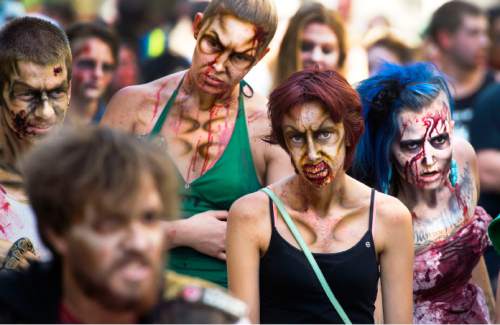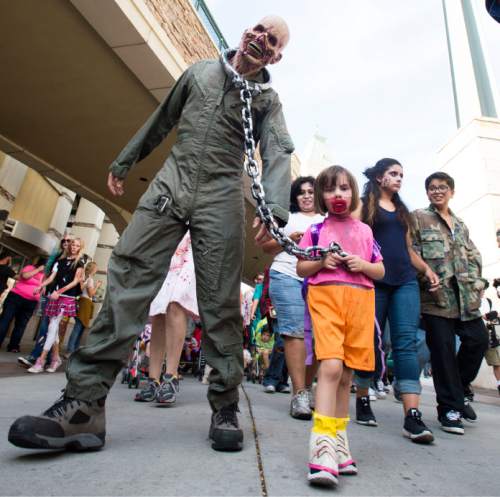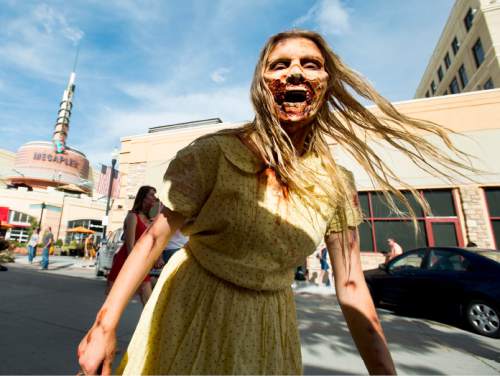This is an archived article that was published on sltrib.com in 2015, and information in the article may be outdated. It is provided only for personal research purposes and may not be reprinted.
Like a grizzled Rick Grimes from "The Walking Dead," Salt Lake City is quite likely to survive a zombie apocalypse.
CareerBuilder, a human resources company, crunched labor market data to figure out how each of the nation's 53 largest cities would fare if a zombie virus broke out. The company's self-described "totally necessary and 100 percent practical survey," released Thursday, ranked Salt Lake City second on the list, surpassed only by Boston.
Choosing from the various options in zombie lore, CareerBuilders assumed the apocalypse takes the form a flesh-eating viral outbreak, transmitted via a bite or contact with infected blood.
The survey measured cities' occupational skills, population densities, exports and biomedical research, among other factors, to rate them in four apocalyptic abilities: defend against the virus, contain the virus, find a cure and outlast the outbreak with an ample food supply.
Besides its strong supply of food and access to food manufacturing, Salt Lake's superb ability to contain the virus helped push Utah's capital high up the list. To calculate that category, CareerBuilder assessed cities' "engineering prowess" (how many people's occupations are in related fields), how many people work in construction, and population density.
"Why population density? The higher a metro's population density, the faster its contamination rates, and the less time to organize and find a cure," CareerBuilder's news release reads.
New York City was at the bottom of the list as the metropolis most likely to succumb to the undead hordes.
Twitter: @MikeyPanda







